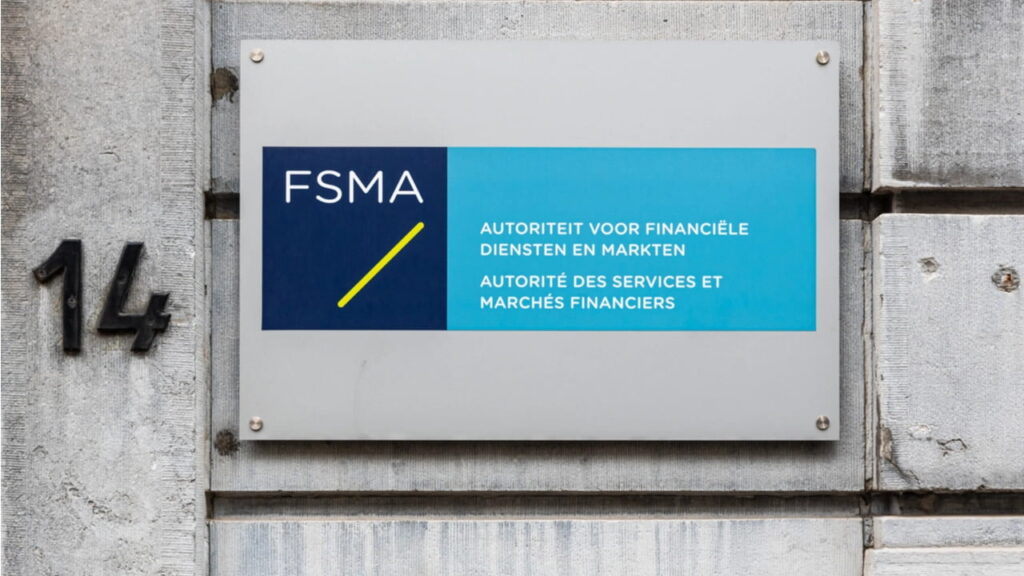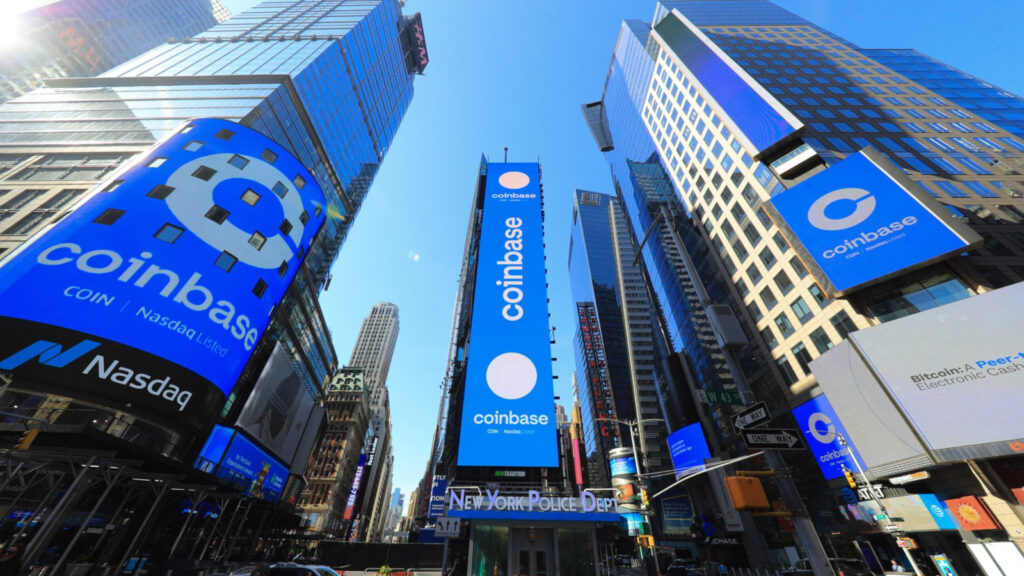A new analysis of Silicon Valley Bank (SVB) has found that numerous losses, a massive loan portfolio, and other issues have led to its collapse.
The SSRN report cited around 190 banks across the United States that could potentially see bank runs as a result of the ongoing crisis.
Explaining the looming risk triggered by uninsured deposit withdrawals, the report read: “Even if only half of uninsured depositors decide to withdraw, almost 190 banks are at a potential risk of impairment to insured depositors, with potentially $300 billion of insured deposits at risk.”
Central banking monetary policies could pose significant risks to government bonds, mortgages, and other assets, sparking further banking losses, it added.
It defined banks failing to hold sufficient market-to-market asset values and repay all insured deposits as insolvent.
Rising US interest rates plummeted asset market values across the US banking system to a total of $2 trillion USD. The report concluded: “Recent declines in bank asset values significantly increased the fragility of the US banking system to uninsured depositors runs.”
“Even if only half of uninsured depositors decide to withdraw, almost 190 banks are at a potential risk of impairment to insured depositors, with potentially $300 billion of insured deposits at risk. If uninsured deposit withdrawals cause even small fire sales, substantially more banks are at risk,” it read.
The news comes after SVB collapsed in March due to rising Fed rates, leading to a massive liquidity crisis and subsequent bank runs. The bank has supplied the global tech industry with critical loans and leaves a massive hole in funding for many of the world’s tech startups and firms, among others.
Banking giant HSBC bought the British arm of SV Global for only £1 following the former’s bankruptcy.
READ: Why Are Crypto & Tech PR Agencies Asking Employees to Complete the CIACM MMQ
Montenegrin police have allegedly arrested a man believed to be cryptocurrency fugitive Do Kwon, reports revealed on Thursday.
Authorities arrested the Terraform creator, after his cryptocurrency plummeted in value, causing investors to lose over $40 billion USD.
US officials slapped the executive with allegedly orchestrating a “multibillion-dollar crypto asset securities fraud.”
Filip Adzic, Montenegro’s interior minister, revealed the arrest update after tweeting that “Montenegrin police detained a person suspected of being one of the most wanted fugitives, South Korean citizen Do Kwon, co-founder and CEO of Singapore-based Terraform Labs.”
He added that Do Kwon had allegedly travelled under fake documents, and authorities are currently waiting to confirm his identity.
The news comes after the collapse of Do Kwon’s Terraform enterprise, Terra Luna, and TerraUSD tokens, sending shockwaves across cryptocurrency markets. This sparked a massive sale of Bitcoin, Ethereum, Tether, and other major cryptocurrencies in May last year.
Interpol later issued an international red notice after the US Securities and Exchange Commission (SEC) accused him of failing to fully disclose his crypto assets. The agency also stated he had misled holders and investors of stablecoin TerraUSD.
The US Securities and Exchange Commission (SEC) has informed Coinbase Global Inc that it could face civil action for several of its products.
News of the potential legal action tumbled Coinbase shares to $68.18, down 12 percent from before.
According to a Wells notice, SEC authorities were set to launch enforcement actions against Coinbase. Despite this, it did not indicate the regulatory agency would file charges or initiate penalties.
Coinbase products such as Coinbase Earn, Coinbase Prime, and Coinbase Wallet, and other spot market products would be targeted, the SEC continued.
Brian Armstrong, Coinbase CEO, hit back at the Wells notice in a statement: “Going forward the legal process will provide an open and public forum before an unbiased body where we will be able to make clear for all to see that the SEC simply has not been fair, reasonable, or even demonstrated a seriousness of purpose when it comes to its engagement on digital assets.”
The SEC and the New York Attorney General have targeted several key cryptocurrency exchanges, including KuCoin, Coinbase, CoinEx, and many others. Many currency exchanges have faced lawsuits due to allegedly trading unregistered securities.
US regulators have slapped eIght celebrities with charges for operating an illegal cryptocurrency trading scheme.
In a Securities and Exchange Commission (SEC) press release, stars such as rapper Soulja Boy, actress Lindsay Lohan, and others face charges. According to the statement, they allegedly failed to disclose to social media followers they had been paid to promote TRX and BTT cryptocurrencies.
According to reports, Lohan and boxing superstar Jake Paul have agreed on a settlement.
Additional celebrities involved in the scandal include singer Austin Mahone, rapper Lil’ Yachty, singer Akon, porn actress Kendra Lust, and hip-hop artist Ne-Yo.
JUST IN:
— unusual_whales (@unusual_whales) March 22, 2023
The SEC has charged eight celebrities regarding "illegally touting" $TRX and $BTT without disclosing that they were being paid.
The celebrities are:
– Lindsay Lohan
– Jake Paul
– Soulja Boy
– Austin Mahone
– Kendra Lust
– Lil Yachty
– Akon
– Ne-Yo
The SEC stated: “[It] charged the following eight celebrities for illegally touting TRX and/or BTT without disclosing that they were compensated for doing so and the amount of their compensation.”
SEC authorities also charged cryptocurrency investor Justin Sun with fraud for allegedly manipulating trading for two tokens.
The statement continued: [Sun is accused of] “orchestrating a promotional campaign in which he and his celebrity promoters hid the fact that the celebrities were paid for their tweet.”
It also charges Sun’s companies Tron Foundation Ltd, BitTorrent Foundation Ltd, and Rainberry Inc.
Regulators Crack Down on Superstar Crypto Scheme
SEC chair Gary Gensler said the case demonstrated the “high risk investors face when crypto asset securities are offered and sold without proper disclosure.”
He added: “As alleged, Sun and his companies not only targeted U.S. investors in their unregistered offers and sales, generating millions in illegal proceeds at the expense of investors, but they also coordinated wash trading on an unregistered trading platform to create the misleading appearance of active trading in TRX.
It also accused Sun of convincing investors to buy TRX and BTT with the promotional campaign, according to Gurbir S Grewal, SEC Director of Division of Enforcement.
He concluded: “As alleged in the complaint, Sun and others used an age-old playbook to mislead and harm investors by first offering securities without complying with registration and disclosure requirements and then manipulating the market for those very securities.”
Lohan has paid the SEC $10,000, with an additional $30,000 in fines. Paul has paid over $100,000. The eight people, excluding Soulja Boy and Mahone, have paid a total of over $400,000 in settlements.
A row over forced arbitrations should temporarily pause courts until debates are resolved, Coinbase has told the United States Supreme Court on Tuesday.
According to reports, the case is not directly linked to cryptocurrencies but could affect cryptocurrency exchanges in disputes with customers.
The case could set a precedent for customers to settle their disputes in courtrooms rather than through channels provided by user agreements.
Neal Katyal, a lawyer for Coinbase, said that “Congress did something very unusual” after it allowed customers to respond to denied forced arbitration by appealing court cases.
He added courts should have a “background rule” to outline that appeal laws did not allow courts to continue when triggered.
Allowing customers to proceed with cases, leading to the exchange of evidence and data, companies could be “coerced into a massive settlement” due to information leaked to the public and press.
He added: “That toothpaste can’t later be put back into the tube.”
But Hassan Zavareei, Bielski’s lawyer, responded: “The entire cryptocurrency market is collapsing under our feet.” He also stated that compulsory delays from companies could block people from pursuing court cases against businesses during the appeal process.
The case, Coinbase Inc v Bielski, Abraham Bielski accused Coinbase of weak protections after a cybercriminal stole $31,000 from his account. Courts approved he could file his complaint and launch a court case, sparking outcry from Coinbase.
Coinbase’s user agreement resolves disputes via the Federal Arbitration Act, which outlines proceedings for resolving disputes. Action in trial courts are forced to pause following appeal denials of compulsory arbitrations.
Cryptocurrency exchange platform OKCoin suspended trading of its MiamiCoin and NYCCoin on Thursday last week, citing liquidity issues first noted in January.
In a blog post, it wrote: “Limited liquidity for these coins on our platform has created the possibility of price manipulation and fraudulent activity. While none of these risks have occurred, we wanted to get ahead of any possible misconduct.”
The company added: “The concern with low liquidity is that malicious, third party actors can manipulate prices, launder stolen funds, and perpetrate other frauds. While none of these risks have occurred, we wanted to get ahead of any possible misconduct. So we moved immediately to address and stop these events from occurring.”
OKCoin plans to resume trading the coins after resolving their “unexpected” low liquidity issues. Those holding the digital assets can keep them on OKCoin or transfer them to decentralised wallets.
The San Francisco-based cryptocurrency exchange is the only citycoin provider, it added. The assets allow citizens to build cryptocurrency wealth via their resident cities.
Bitcoin has become a safe bet for many in the financial world amid a series of turbulent developments across the banking industry, reports have revealed,
A Reuters analysis has stated that, as global markets nosedive into a recession, numerous cryptocurrencies have recovered while stock trading indexes have dipped.
According to figures, Bitcoin reached 21 percent in March while the S&P 500 tumbled 1.4 percent. Gold has also gained roughly 8 percent amid the market chaos.
Stéphane Ouellette, CEO at digital asset investment platform FRNT Financial, said as quoted by Reuters:
“If you were going to describe an environment where there were successive bank runs because central banks are trying to fight inflation with fast rate increases, that is pretty close to as spot-on a thesis for owning bitcoin as you’ve ever heard.”
Ouellete concluded: “The bearish argument would be that these dynamics are temporary, and ultimately this rally is not going to sustain.”
Bitcoin vs Big Banks
This has allowed the digital asset to become a safe haven for investors despite ongoing banking and crypto trading platform collapses at FTX as well as Silvergate, Signature, and Silicon Valley Banks.
Additionally, Credit Suisse teetered on the verge of collapse last week, with banks losing billions in market value, triggering national regulators to crack down on the companies.
To date, Bitcoin holds roughly 43 percent of all cryptocurrency markets, with overall crypto market capitalisation spiking to 23 percent, or $1.1 billion, after 10 March.
Amid the Bitcoin rally, however, several key stablecoins have lost their dollar peg due to market instability. Circle USD (USDC) recently depegged from its 1:1 ration over exposure to now-defunct SVB’s US operations.
This forced its market capitalisation to plummet $36.8 billion USD on Friday last week. Conversely, Tether’s market cap rose to nearly $4 billion USD.
Chainlink Labs announced on Wednesday that it had partnered with PriceWaterhouseCooper Germany to boost the adoption of its enterprise-grade blockchain technologies.
The collaboration will see Chainlink Labs PwC Germany’s partner companies hoping to leverage blockchain technologies. PwC will advise such firms with its knowledge of Web3 regulations and technologies in the joint venture via Chainlink’s blockchain middleware.
PwC Germany (@pwc_de) has entered into a strategic collaboration with @ChainlinkLabs to accelerate enterprise #blockchain adoption.
— Chainlink (@chainlink) March 22, 2023
This collaboration supports enterprises in seamlessly interfacing with blockchains via #Chainlink’s secure middleware: https://t.co/VkSPNUS7Vg pic.twitter.com/b69gHXFM20
The news comes amid a push for blockchain and smart contracts—Web3 technologies designed to empower industry 4.0, despite technical challenges. Issues such as secure connectivity and blocked interoperability continue to limit the capabilities of most on-chain firms and networks.
PwC Germany has expertise with its in-house blockchain technologies, which include Blockchain Explorer and Transaction Analyzer (BETA), Smart Contract Formal Verification Framework, Tokenization Framework, Travel Rule Integration, and Digital Asset Valuation Model.
The joint venture will also facilitate technological assessments and strategies, consultation, ecosystem management, and others, as outlined in PwC’s recent report.
Dimitri Gross, Technology Interest Group lead for digital assets and crypto for PwC Germany, said: “PwC Germany and Chainlink Labs aim to help accelerate enterprise adoption of blockchain technology in key enterprise sectors such as capital markets, ushering in a new era of transactional security, transparency, and efficiency.”
William Herkelrath, managing director of business development at Chainlink Labs, added the strategic collaboration would “help enterprises securely connect their existing systems to all major blockchain networks.
He concluded: “By interacting with the blockchain economy through Chainlink, enterprises can begin realizing the transformative power of smart contracts and blockchain oracles.”
Belgium’s Financial Services and Markets Authority (FSMA) received upgraded powers to monitor digital currency adverts on 17 May, it revealed in a report.
The organisation has surveyed investors to prepare for its supervisory role after the law enters force. The latter requires adverts to meet three key conditions, including,
- Advertisements cannot note potential advantages without explaining risks, limitations, and conditions.
- Campaigns with audiences of 25,000 or more must receive approval 10 days ahead of notice. This will allow the Belgian government to “enable the FSMA to intervene, if necessary, before the campaign actually begins.”
- Advertisements cannot post statements about future values or returns. All adverts must have clear language to inform audiences.
Survey Findings
Belgium’s FSMA will also improve educational resources via its Wikifin financial education centre and has surveyed 1,000 investors in the nation to assess the market.
The survey, which took place in November last year, aims to receive data on investment products across the industry.
According to findings, 34 percent of investors aged 16 to 29 had purchased digital currencies. This fell to 11 percent for people aged 50 to 59.
An overwhelming 80 percent of customers were men and natives of Flanders, Wallonia, and Brussels at 63 percent, 22 percent, and 15 percent.
Just 15 percent of investors surveyed held over 10,000 euros in cryptocurrencies and 31 percent totalling 500 euros. More investors used word of mouth and apps over typical investment channels.
Additionally, recent ongoing concerns over the ‘cryptowinter’ have failed to affect market sentiment in buying and selling cryptocurrencies, according to the survey.
7 percent of respondents said they would cease trading virtual currencies due to the crisis. However, over 60 percent said the cryptowinter as a “temporary correction” and would continue trading crypto.
A further 16 percent of investors said the cryptowinter was an opportunity to increase trading.
The cryptocurrency market’s medium to long-term forecast had been “reinforced to the upside” amid ongoing market and banking chaos in the United States, a key Coinbase executive said on Friday.
David Duong, head of institutional research, said in the report,
“Cryptocurrencies have exhibited some resilience, in part due to technical reasons, [and more people] now appreciate the fundamental value proposition of having an alternative to the points of failure inherent in the traditional financial system.”
The news comes amid ongoing Federal Reserve rate hikes, which have triggered instability and belt-tightening across the banking sector.
Additional crises, including the collapses of Silvergate Bank, Signature Bank, Silicon Valley Bank, and now-defunct crypto platform FTX, have created further headaches for investors.
The report added that open trustless blockchain and smart contract technologies stood in “stark contrast to the poor risk management practices that led to the turmoil witnessed in the U.S. banking sector this week.”
The report concluded that its observations supported the “fundamental arguments in favor of digital assets as an alternative and solution to the points of failure witness in the existing financial system.”
The operating environment for cryptocurrency business could “be more challenging” due to fiat payment rail losses. It also expected further redundancies to enter force, “expanding the crypto ecosystem in more creative ways.”












